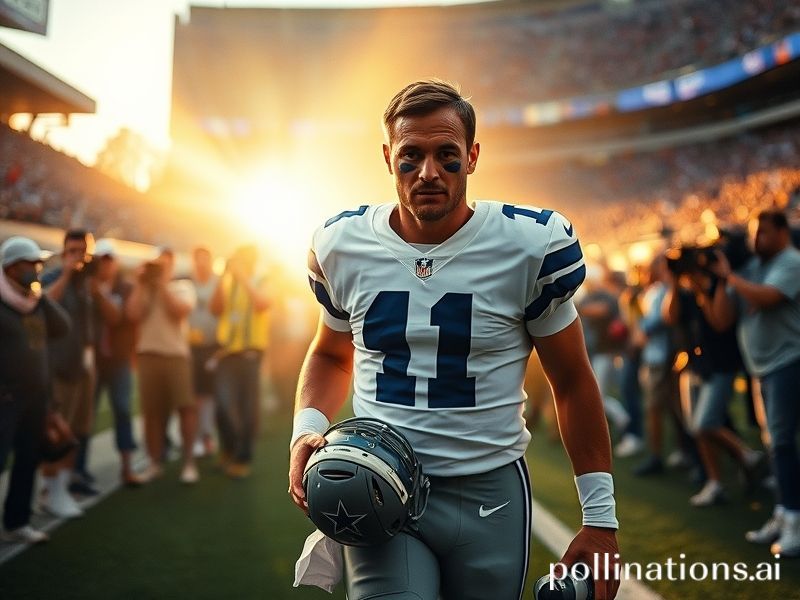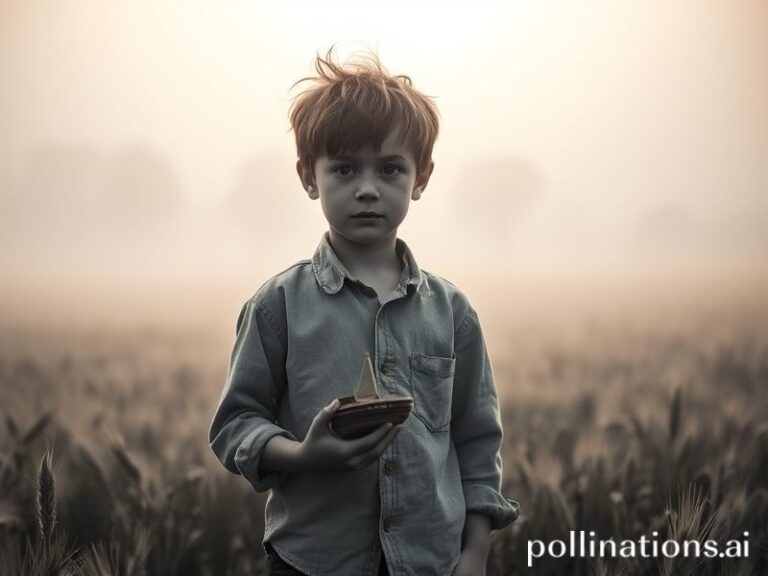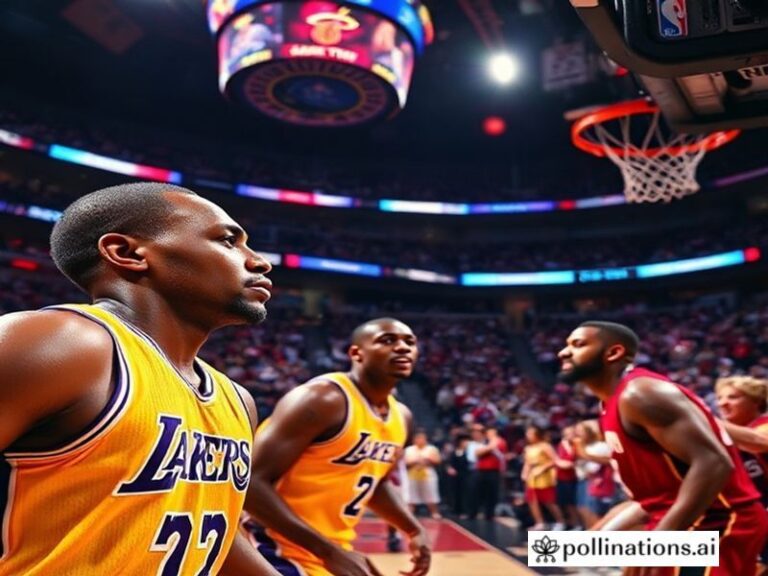Dak Prescott: The $160 Million Quarterback Accidentally Running America’s Most Effective Foreign Policy
**Gridiron Diplomat: How Dak Prescott Became the World’s Most Reluctant Soft-Power Asset**
From the glass towers of Doha to the noodle stalls of Ho Chi Minh City, a curious phenomenon has emerged: grown men in Ezekiel Elliott jerseys arguing about Dak Prescott’s contract leverage while their local football—*actual* football—matches drone on in the background. Somewhere between the 50-yard line and the geopolitical fault lines of 2024, America’s most politely polarizing quarterback has become an unlikely cultural export, like McDonald’s but with slightly more concussions.
The international fascination isn’t about Prescott’s spirals—though his 4,516 passing yards last season did briefly trend on Chinese social media under the hashtag #美式橄榄球数学 (#AmericanFootballMath). It’s about what he represents: the last gasp of the American meritocracy myth wrapped in a $160 million contract. While European soccer stars dive with operatic flair and South American players kiss badges like betrayed lovers, Prescott stands as a peculiar monument to American exceptionalism—simultaneously overpaid and underappreciated, depending on which Dallas sports radio host has indigestion that morning.
In international relations terms, Prescott functions as America’s cultural Rorschach test. When he leads fourth-quarter comebacks, German analysts cite it as evidence of American resilience. When he throws red-zone interceptions, Chinese state media frames it as capitalist inefficiency. The French, naturally, remain unimpressed either way, though Le Monde did publish a 3,000-word meditation on Prescott’s injury history titled *”L’Américain Fragile: Fragilité et Fortunes du Sport Moderne.”*
The global implications extend beyond sports pages. During last year’s cryptocurrency collapse, Nigerian investors created “DakCoin,” a digital currency whose value fluctuated based on Prescott’s weekly passer rating—a financial instrument so absurd that even the SEC refused to regulate it, citing “performance art” exemptions. Meanwhile, Russian bots have weaponized Prescott’s contract negotiations in disinformation campaigns, flooding African social media with posts claiming the Cowboys quarterback earns more than their entire national health budgets. (Fact-check: sometimes true, depending on the nation and Dak’s incentive clauses.)
But perhaps Prescott’s greatest international contribution is unintentional: he’s become a case study in the economics of hope. Japanese efficiency experts analyze his pocket presence for insights on corporate decision-making. British hedge funds model derivatives on his completion percentage. In a world where actual diplomacy resembles a particularly chaotic fantasy football league, Prescott’s weekly performances offer the kind of predictable unpredictability that global markets crave.
The quarterback himself remains endearingly oblivious to his soft-power role, which only enhances his effectiveness. While NBA stars carefully curate their international brands and soccer icons hire cultural consultants, Prescott’s post-game interviews retain that distinctive flavor of American earnestness—part motivational speaker, part deer-in-headlights. It’s this authenticity that resonates from Mumbai sports bars to Icelandic Airbnbs, where insomniac tourists discover Cowboys games at 3 AM and become emotionally invested in the outcome of contests they barely understand.
As climate change accelerates and democracy teeters like a quarterback with a collapsing pocket, Prescott’s weekly heroics—or failures—provide a rare constant in the international chaos. He’s become the world’s most expensive anxiety blanket, a $40 million-per-year reminder that somewhere in Texas, a man in a helmet still believes tomorrow can be better than today, even if yesterday’s game was an unmitigated disaster.
In the end, Dak Prescott’s global significance isn’t measured in touchdowns or dollars, but in the peculiar comfort he provides to a world that increasingly resembles a poorly coached football team: talented but directionless, wealthy but anxious, forever one play away from either glory or catastrophe. At least when the actual apocalypse arrives, we’ll have something to talk about while we wait for the Wi-Fi to die.







